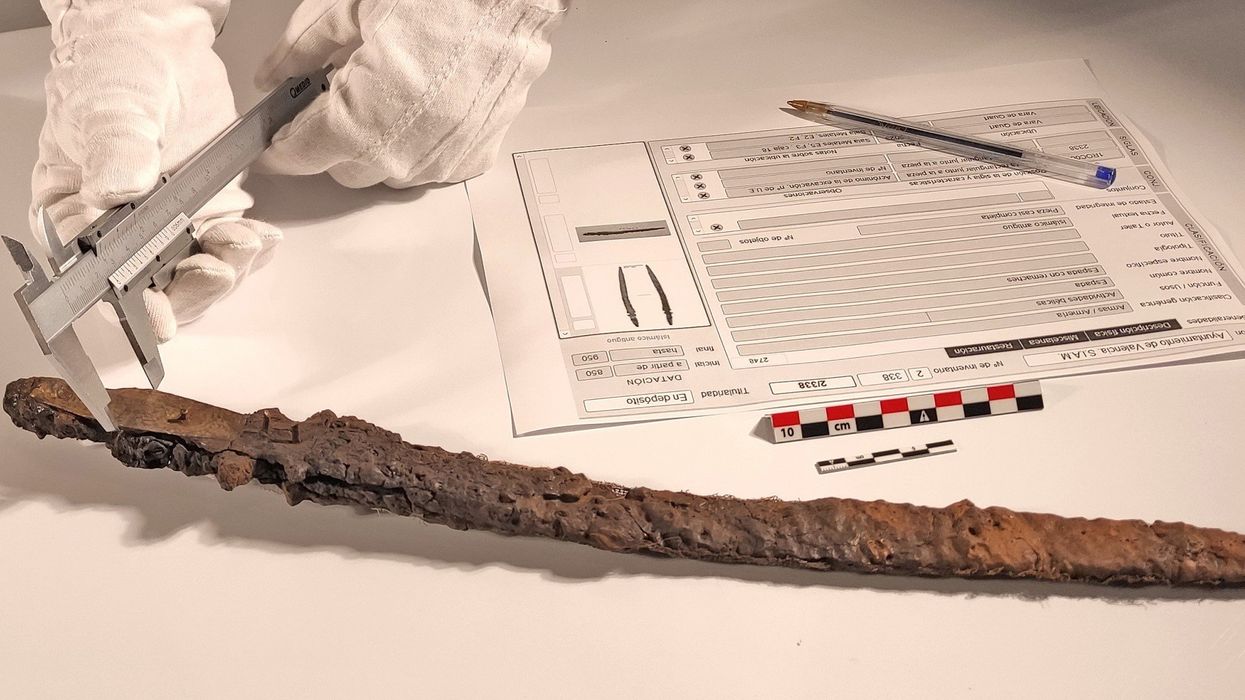Ellie Abraham
Apr 30, 2024

Origins of 'Excalibur' sword discovered by scientists
Origins of 'Excalibur' sword discovered by scientists
Origins of the “Excalibur” sword have been identified by archeologists in Valencia after it was first discovered in 1994.
Archeologists are constantly making new discoveries, with Roman paintings recently uncovered on the walls of a building in Pompeii and the lost home of Rome’s first emperor found.
Now, an archaeological study of the Excalibur sword has revealed it has Islamic origins and dates back to some time during the 10th century AD.
In 1994, the sword was discovered in Valencia – one of the oldest cities in Spain founded in 138 BC.
Valencia was once destroyed by Abd al-Rahman I of the Umayyad dynasty and, under Caliphate rule, it became known as Madînat al-Turâb, which means “city of earth” or “sand”.
The sword was found in an Islamic era house in Valencia, standing upright out of a grave, giving it the nickname of the Excalibur sword. It is made from iron and has bronze plates decorating the hilt.
It measures 46 centimetres in length and the blade is slightly curved at the tip. Archaeologists say the sword is a rare find, due to oxygen and water and soil typically contributing to the oxidation of the iron.
The Valencia City Council explained: “It is the first Islamic sword that appears in the city of Valencia, with only one similar example being found during the excavations of Medina Azahara, the caliphal city of Abd al-Rahman III, in Córdoba.”
The sword was located in layers of sedimentary rock dating back to the 10th century AD. It is thought the sword was a weapon used by a cavalryman from the Andalusian Caliphate Era.
Sign up for our free indy100 weekly newsletter
How to join the indy100's free WhatsApp channel
Have your say in our news democracy. Click the upvote icon at the top of the page to help raise this article through the indy100 ranking
Top 100
The Conversation (0)













